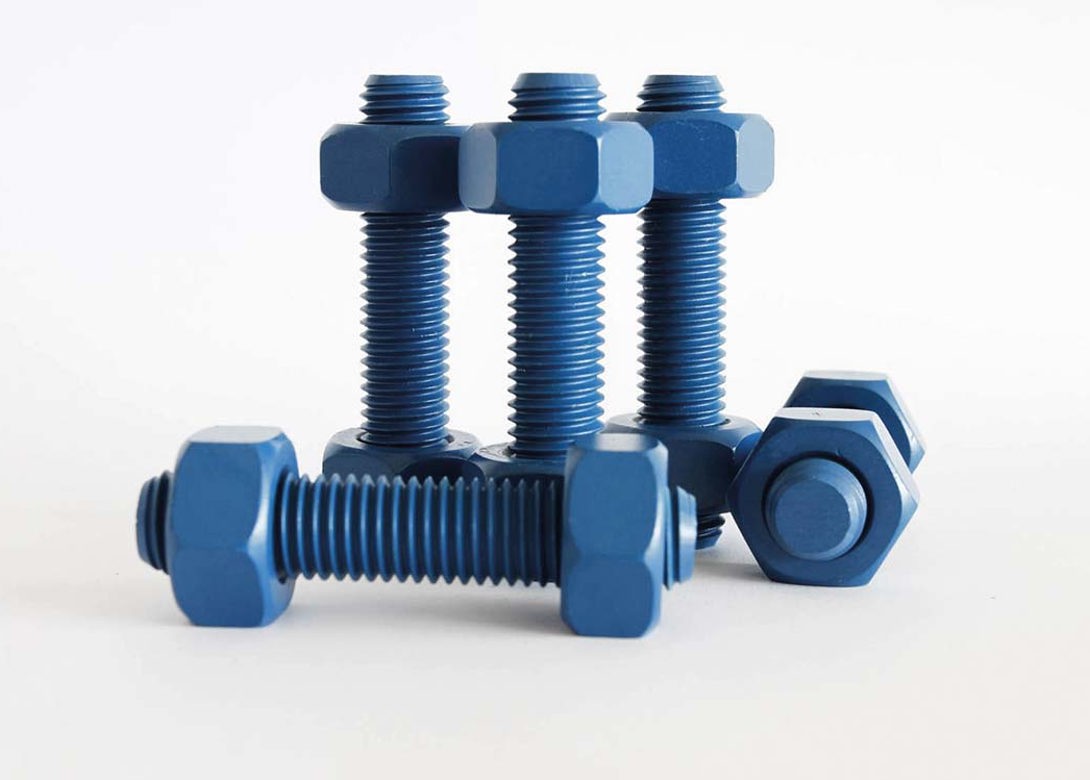
In addition to technical and commercial advantages, the environmental compatibility and sustainability of the Expanite process is playing an increasingly important role for customers. Expanite is becoming a popular alternative to classic fluoroplastic coatings such as Teflon®, Halar® or Xylan®.
After the discovery of PTFE (polytetrafluoroethylene) – also known as Teflon® – in 1938, some time passed before technically usable applications for the highly inert material paved their way. Today, coatings based on per and polyfluoroalkyl substances (PFASs), known by their trade names such as Teflon®, Halar® or Xylan® or more generally referred to by the abbreviations ECTFE, PFA, FEP, ETFE, PVDF, etc, are applied in many areas to optimise the sliding and non-stick properties, as well as wear and corrosion resistance of components.
In addition to the well known disadvantages of coatings, such as inhomogeneous layer thicknesses, layer detachment and increased corrosion attack if the coating is damaged, PFAS-based products have another substantial deficit – the highly stable, and therefore not completely degradable, carbon-fluorine compounds are harmful not only for humans but also to the environment and can cause cancer, among other things.
Accordingly, there has been a trend towards avoiding the use of these materials since the early 2000s, especially when it comes to improving wear and corrosion resistance.
Expanite surface hardening offers a cost-effective and sustainable alternative. The Expanite technology is based on a gas process in which carbon and nitrogen are diffused in the component surface. The otherwise comparable soft and wear prone stainless steel material hardens by a factor of up to 10 and while classic diffusion processes impacting corrosion resistance of the material, the Expanite processes generally improve the corrosion properties of the component.
Sustainable against wear and galling
Besides the elimination of carcinogenic substances, Expanite’s gas-based diffusion process is significantly more energy efficient and environmentally friendly than comparable wear protection processes, and thanks to treatment in a vacuum, no time-consuming cleaning of the parts, with potentially aggressive chemicals, is necessary after hardening.
“The different cases in which Expanite is used as an alternative to such plastic coatings are widely spread and can be found, for example, in the areas of pumps and valves, food and beverage or general industrial applications,” explains Dr Holger Selg, application expert and Expanite sales director DACH. “First and foremost, we increase the wear and galling resistance of stainless steel components. By hardening the surface, the sliding properties are improved at the same time and, depending on the application, offer an adequate replacement for fluoroplastic coatings.”
The Expanite technology, specially developed for corrosion resistant materials, offers a solution for austenitic, martensitic, ferritic, and duplex stainless steels, as well as for expensive nickel-based alloys such as Inconel and Hastelloy. Moreover, ExpaniteHard-Ti, which the Expanite team of experts has developed, is used for titanium grades.

Having spent a decade in the fastener industry experiencing every facet – from steel mills, fastener manufacturers, wholesalers, distributors, as well as machinery builders and plating + coating companies, Claire has developed an in-depth knowledge of all things fasteners.
Alongside visiting numerous companies, exhibitions and conferences around the world, Claire has also interviewed high profile figures – focusing on key topics impacting the sector and making sure readers stay up to date with the latest developments within the industry.





